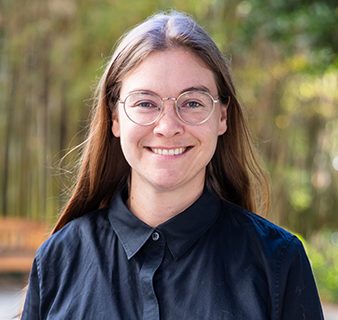
- This event has passed.
IBS/Program on International Development Speaker Series: Calla Hummel
March 14, 2024 @ 12:00 pm - 1:00 pm

Join in person or via Zoom, email ibs-contact@colorado.edu for the password.
*Light lunch served at 11:45, please RSVP.
Title: Do Remittances Increase Support for LGBTQ+ Rights?
Abstract: People who have migrated to new countries send billions of dollars in remittances to family members each year. Research shows that receiving remittances influences the recipient’s voting, political engagement, and beliefs. Our project asks: do remittances increase the recipient’s support for gender and sexual minority (LGBTQ+) rights? We suggest that they do. We theorize that migrants send social as well as economic remittances to relatives in their home countries and that these remittances include ideas about civil rights. We argue that when people move to a country with robust LGBTQ+ rights, they may change their beliefs about LGBTQ+ people and communicate that change to their relatives. We hypothesize that social and economic remittances can travel through several pathways: 1) where migrants tell relatives about rights and protections in the host country, relatives are more likely to support similar rights in the home country; 2) where relatives rely on LGBTQ+ family members’ remittances, they are more likely to accept their identities; 3) where relatives hear about LGBTQ+ people being successful in another country, they are more likely to support LGBTQ+ rights in the home country. To evaluate the hypotheses, we analyze three sources of data: public opinion data from across Latin America that includes information about remittances and attitudes towards gay rights, interviews with LGBTQ+ people who send remittances and their family members, and a set of online survey experiments with Mexican respondents who do and do not have relatives living in the United States. We find through interviews, public opinion data, and experimental survey data that people who receive remittances are more supportive of LGBTQ+ rights than similar people who do not receive remittances.
Bio: Dr. Calla Hummel (xy/xyr, pronounced “zee” and “zir”) studies why and how marginalized people mobilize and influence national politics. Dr. Hummel blends qualitative and quantitative methods to address questions about comparative political economy, public health, and civil society, with a focus on informal workers and LGBTQ+ communities. Dr. Hummel is the author of Why Informal Workers Organize: Contentious Politics, Enforcement, and the State, from Oxford University Press, which won the 2023 Riker Prize for the Best Book in Political Economy. Dr. Hummel’s research has been published in Lancet Global Health, BMJ Global Health, the British Journal of Political Science, Comparative Political Studies, Comparative Politics, Health Affairs, Scientific Data, Perspectives on Politics, Latin American Politics and Society, and Latin American Research Review, among others, and supported by grants from sources including the National Institutes of Health, the National Science Foundation, the Williams Institute, and the American Political Science Association. Xy is currently a professor at the University of Miami but will join the University of British Columbia’s Political Science Department in the fall.

